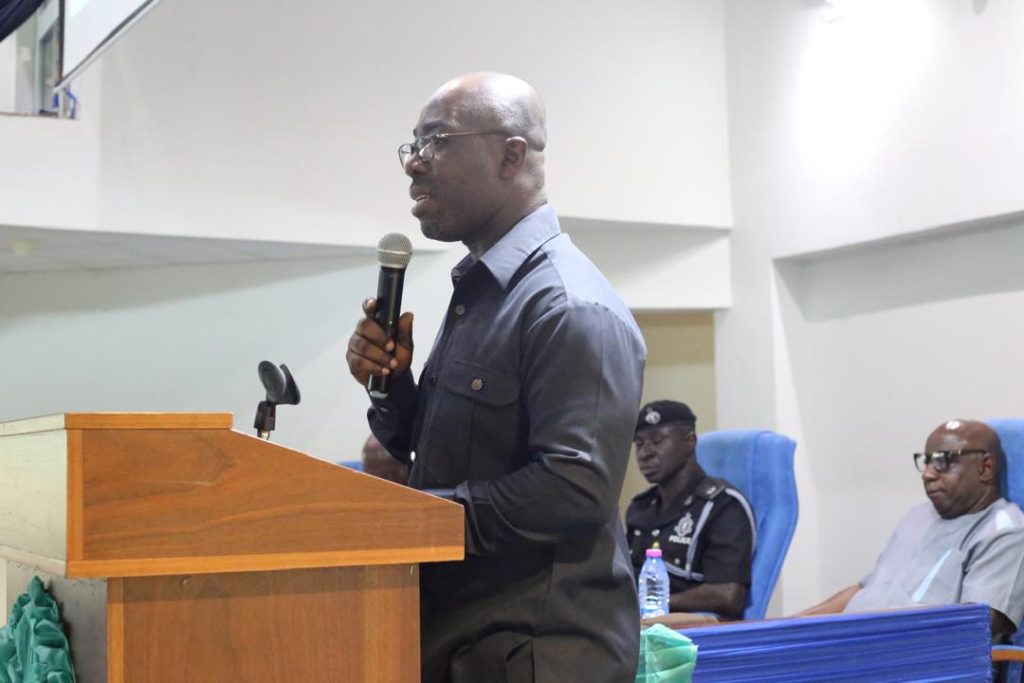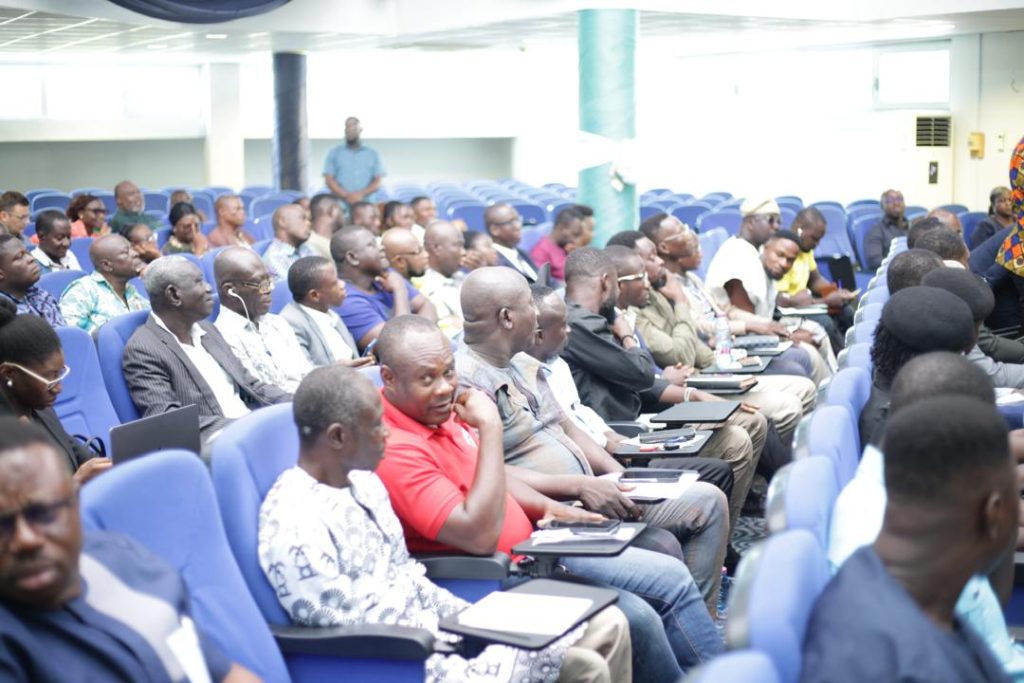By Eric Appah Marfo/ Harriet Akosua Kwakye
Accra, April 7, GNA – Mr Joseph Bukari Nikpe, the Minister of Transport, Monday expressed optimism on effectiveness of the regulatory framework under consideration, which will curb indiscipline among commercial motorcycle and tricycle riders across the country.
The framework is being developed through stakeholder consultations and would introduce new measures such as structured training, licensing, and enforcement regimes to ensure that riders operate in a disciplined and safety-conscious manner.
The Ministry had formed a 13-member committee, including representatives from key ministries and agencies, to develop the draft framework.
Mr Nikpe said this at a National Stakeholder Consultation Workshop on the proposed amendments to the Road Traffic Regulations, 2012 (L.I. 2180) in Accra.
He said the Government was aware of the challenges associated with the increasing use of motorcycles and tricycles for commercial services.
Some of these challenges are rising road crashes, disregard for traffic laws, and poor safety practices.

The Minister said the framework would empower law enforcement agencies, particularly the police, to monitor, caution and even sanction errant riders.
A database of all commercial motorcycles and tricycles would be developed, with riders required to join unions that would collaborate with the authorities to enforce discipline among their members.
“Wrongdoers will either be trained again or we will apply sanctions on you even to a point where we can revoke your license and prevent you from operating,” he added.
The licensing and registration of riders would be handled by the Driver and Vehicle Licensing Authority (DVLA) and not a private entity, he noted.
Mr Nikpe said the consultation process was nearing conclusion and would soon be forwarded to the Subsidiary Legislation Committee of Parliament.
The Attorney General’s Department would handle the drafting of the amendments before being laid before Parliament.
Mr Nikpe indicated that commercial motorcycles and tricycles provided last-mile services and could not be restricted to fixed terminals, nonetheless, the new regime would prioritise safety, inclusivity, and innovation.
The Ministry would collaborate with the Local Government, Decentralisation and Rural Development Ministry and the Chieftaincy and Religious Affairs Ministry to allocate identifiable parking slots or terminals for them.

During a presentation on the framework, Mr Daniel Essel, the Head of Road Transport Services, Ministry of Transport, said a person shall not ride or operate a commercial motorcycle or tricycle unless that person was employed by or belonged to a licensed commercial motorcycle or tricycle transport union.
“A person who operates a motorcycle or tricycle for fare-paying passenger services in contravention of sub-regulation (1) commits an offense and is liable to pay a fine of one hundred (100) penalty unit or to a term of imprisonment or both,” he added.
One was qualified to engage in commercial motorcycle or tricycle operations if that person was incorporated under the Companies Act 2019 (Act 992) as a limited liability company, partnership, union, society, cooperative, or other similar associations.
Mr Essel noted that the person should have physical presence in at least eight administrative regions; have a minimum fleet size of 50 in each of the eight administrative regions or as may be determined by the Regulatory Authority in consultation with the Minister.
He must have a standard union dress code as approved by the Regulatory Authority and meet any other conditions as may be prescribed by the Authority, in collaboration with the Licensing Authority and District Assembly.
Mr Hamza Hafiz, the General Secretary of the National Union of Tricycle Operators of Ghana, in an interview with the Ghana News Agency, called for government intervention in addressing the absence of designated stations for tricycle operations.
“We are encouraging the government to provide us with proper parking stations where rules and regulations can be effectively enforced,” he said.
He noted that the union was open to partnering with the government to ensure that the right structures and systems were implemented.
Mr Hafiz highlighted the insurance challenges faced by tricycle riders due to the lack of legal recognition.
He explained that riders were currently limited to third-party insurance, which offered no protection for their vehicles or investments.
He commended President John Dramani Mahama for initiating efforts to legalise and regulate the operations of tricycles.
GNA
ABD